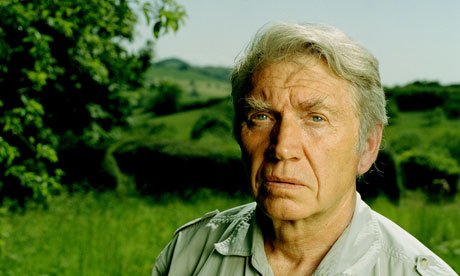
Ever since the invention of photography the camera has been a vital witness to war: Roger Fenton in the Crimea; Mathew Brady recording the American civil war; John Warwick Brooke on the Western Front in the first world war; Robert Capa covering the Spanish civil war, the second world war and war in Indochina, where he died in 1954. The British photojournalist Don McCullin belongs in their company, and in this excellent documentary the careworn, ruggedly handsome McCullin talks straight to camera with great honesty about covering wars and conflicts in Cyprus, Congo, Biafra, Vietnam, Northern Ireland, Cambodia and Lebanon.
His first assignment was in his working-class east London for the Observer, accompanying the American writer Clancy Sigal (who came to Britain as a McCarthy fugitive in the mid-1950s) to report on a violent teenage gang with which he'd been associated. The assignment produced remarkable images, most memorably a half demolished house with the gang strutting their arrogant stuff on different floors. Although he worked on other stories over the years – a famous essay on the American deep south, for instance, and studies of derelicts in Whitechapel – wars are what fascinated him from the early 60s on, working principally for the Sunday Times until the 80s when Rupert Murdoch decided, McCullin tells us, that the paper should move away from his kind of harsh realism and concentrate on "the pleasures of life". He didn't get an invitation to the Falklands war, the military press officers being too aware of what McCullin had done in bringing the horrors of Vietnam back home to middle America.
McCullin became what the French call a baroudeur, a man obsessively drawn to combat, but not in an exploitative, sensationalist way. Though there is a deal of newsreel material in the Morrises' documentary and valuable comments on photojournalism by Harry Evans, former editor of the Sunday Times, what dominates the film are the black-and-white still images. They engrave themselves on our minds, and McCullin talks about them with great feeling and frankness. Nowadays he devotes himself to recording the British countryside, though since this film was made he's visited the civil war in Syria. Don't miss this fine film.

